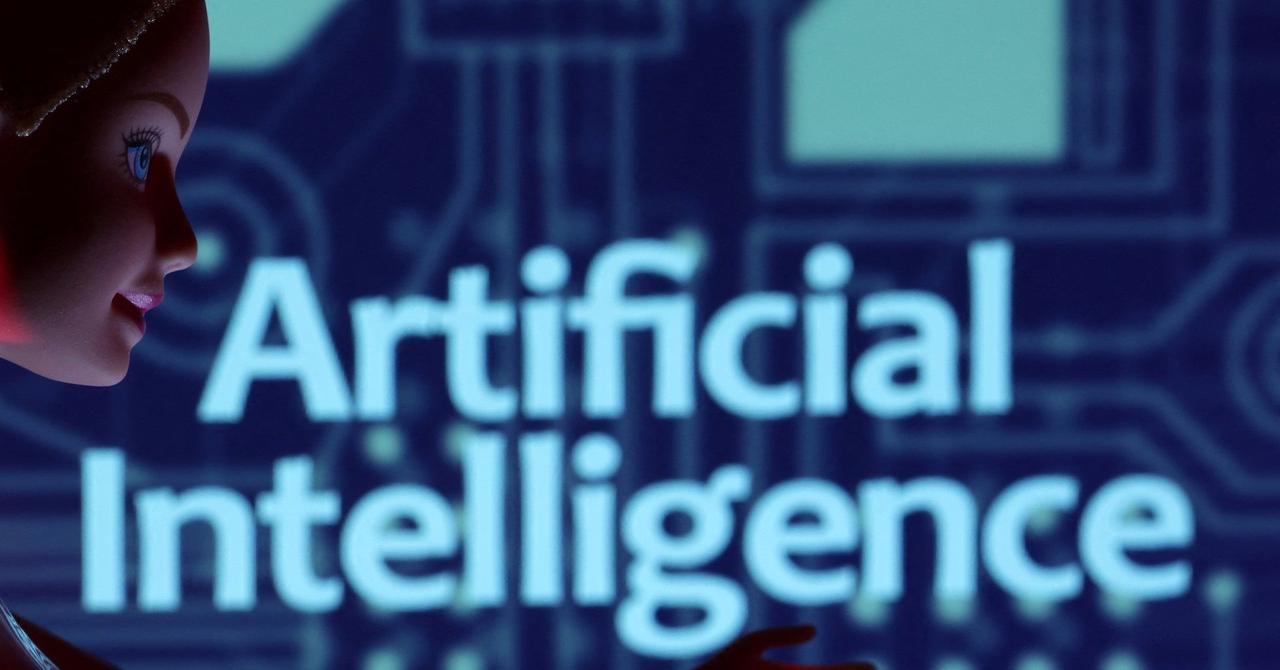AI's Impact on UK Job Market: White-Collar Positions at Risk
3 Sources
3 Sources
[1]
Is AI Taking White Collar Jobs? The Data Says Yes
UK businesses are dialing back hiring for jobs that are likely to be affected by the rollout of artificial intelligence, a study found, suggesting the new technology is accentuating a slowdown in the nation's labor market. Job vacancies have declined across the board in the UK as employers cut costs in the face of sluggish growth and high borrowing rates, with the overall number of online job postings down 31% in the three months to May compared with the same period in 2022, a McKinsey & Co. analysis found. Tiwa Adebayo joins Stephen Carroll on Bloomberg Radio to discuss the details. (Source: Bloomberg)
[2]
AI Is Already Showing Signs of Slashing Job Openings in the UK
UK businesses are dialing back hiring for jobs that are likely to be affected by the rollout of artificial intelligence, a study found, suggesting the new technology is accentuating a slowdown in the nation's labor market. Job vacancies have declined across the board in the UK as employers cut costs in the face of sluggish growth and high borrowing rates, with the overall number of online job postings down 31% in the three months to May compared with the same period in 2022, a McKinsey & Co. analysis found.
[3]
Is AI Taking White Collar Jobs? The Data Says Yes
UK businesses are dialing back hiring for jobs that are likely to be affected by the rollout of artificial intelligence, a study found, suggesting the new technology is accentuating a slowdown in the nation's labor market. Job vacancies have declined across the board in the UK as employers cut costs in the face of sluggish growth and high borrowing rates, with the overall number of online job postings down 31% in the three months to May compared with the same period in 2022, a McKinsey & Co. analysis found. Tiwa Adebayo joins Stephen Carroll on Bloomberg Radio to discuss the details.
Share
Share
Copy Link
A McKinsey study reveals that AI is contributing to a decline in job openings across the UK, particularly affecting white-collar positions. The analysis shows a 31% drop in online job postings compared to the previous year.
AI's Growing Impact on UK Job Market
A recent study by McKinsey & Co. has revealed that artificial intelligence (AI) is already showing signs of significantly impacting the job market in the United Kingdom, particularly in white-collar sectors. The analysis indicates that UK businesses are scaling back their hiring efforts for positions likely to be affected by the rollout of AI technologies
1
.Dramatic Decline in Job Postings
The study found a substantial decrease in job vacancies across the UK. In the three months leading up to May, there was a 31% drop in online job postings compared to the same period in 2022
2
. This decline is attributed to multiple factors, including employers cutting costs in response to sluggish economic growth and high borrowing rates. However, the integration of AI technologies appears to be exacerbating this trend, particularly in white-collar professions.AI's Role in the Labor Market Slowdown

Source: Bloomberg
The McKinsey analysis suggests that the introduction of AI is accentuating a broader slowdown in the UK's labor market. As businesses increasingly adopt AI solutions, they are reassessing their workforce needs, especially for roles that could potentially be automated or augmented by AI technologies
3
.Economic Factors Contributing to the Trend
While AI is playing a significant role in reshaping the job market, it's important to note that other economic factors are also at play. The UK is facing challenges such as:
- Sluggish economic growth
- High borrowing rates
- Cost-cutting measures by employers
These factors, combined with the rapid advancement of AI technologies, are creating a perfect storm that is reshaping the employment landscape in the UK.
Implications for White-Collar Workers
The study's findings have particular implications for white-collar workers. Jobs that involve routine cognitive tasks, data analysis, and decision-making based on structured information are more likely to be affected by AI integration. This could include roles in sectors such as:
- Finance and accounting
- Human resources
- Customer service
- Data entry and processing
- Certain aspects of legal and administrative work
As AI continues to evolve, it's likely that more sophisticated white-collar roles may also be impacted, prompting a need for workforce adaptation and reskilling initiatives.
Related Stories
Expert Insights

Source: Bloomberg
To discuss the details of this trend, Tiwa Adebayo joined Stephen Carroll on Bloomberg Radio
1
. Their conversation likely delved into the nuances of AI's impact on various industries and the potential long-term consequences for the UK job market.Future Outlook
As AI continues to advance and become more integrated into business operations, it's clear that the job market will continue to evolve. While this trend presents challenges, it also opens up opportunities for new types of roles and skills that complement AI technologies. The key for workers and businesses alike will be to adapt to this changing landscape and find ways to leverage AI while developing uniquely human skills that remain valuable in an increasingly automated world.
References
Summarized by
Navi
[1]
[3]
Related Stories
AI job cuts hit UK hardest with 8% net losses as workers fear displacement across industries
26 Jan 2026•Business and Economy

AI's Impact on the Job Market: More Retraining Than Layoffs, For Now
05 Sept 2025•Business and Economy

AI-Driven Layoffs Surge to 22-Year High as Companies Embrace Automation Over Human Workers
06 Nov 2025•Business and Economy

Recent Highlights
1
Hollywood studios demand ByteDance halt Seedance 2.0 after AI-generated Tom Cruise fight goes viral
Technology

2
Microsoft AI chief predicts automation of white collar tasks within 18 months, sparking job fears
Business and Economy

3
University of Michigan's Prima AI model reads brain MRI scans in seconds with 97.5% accuracy
Science and Research





